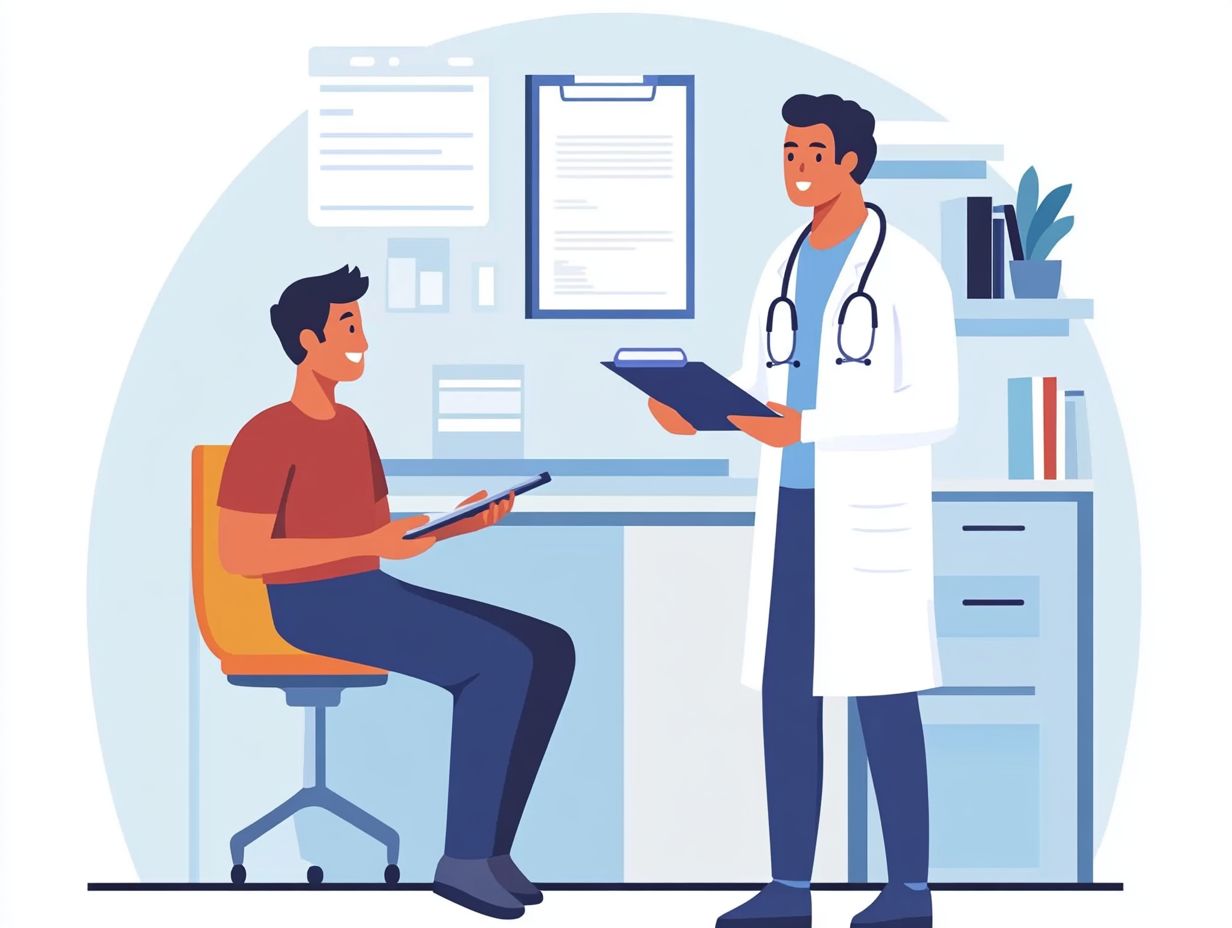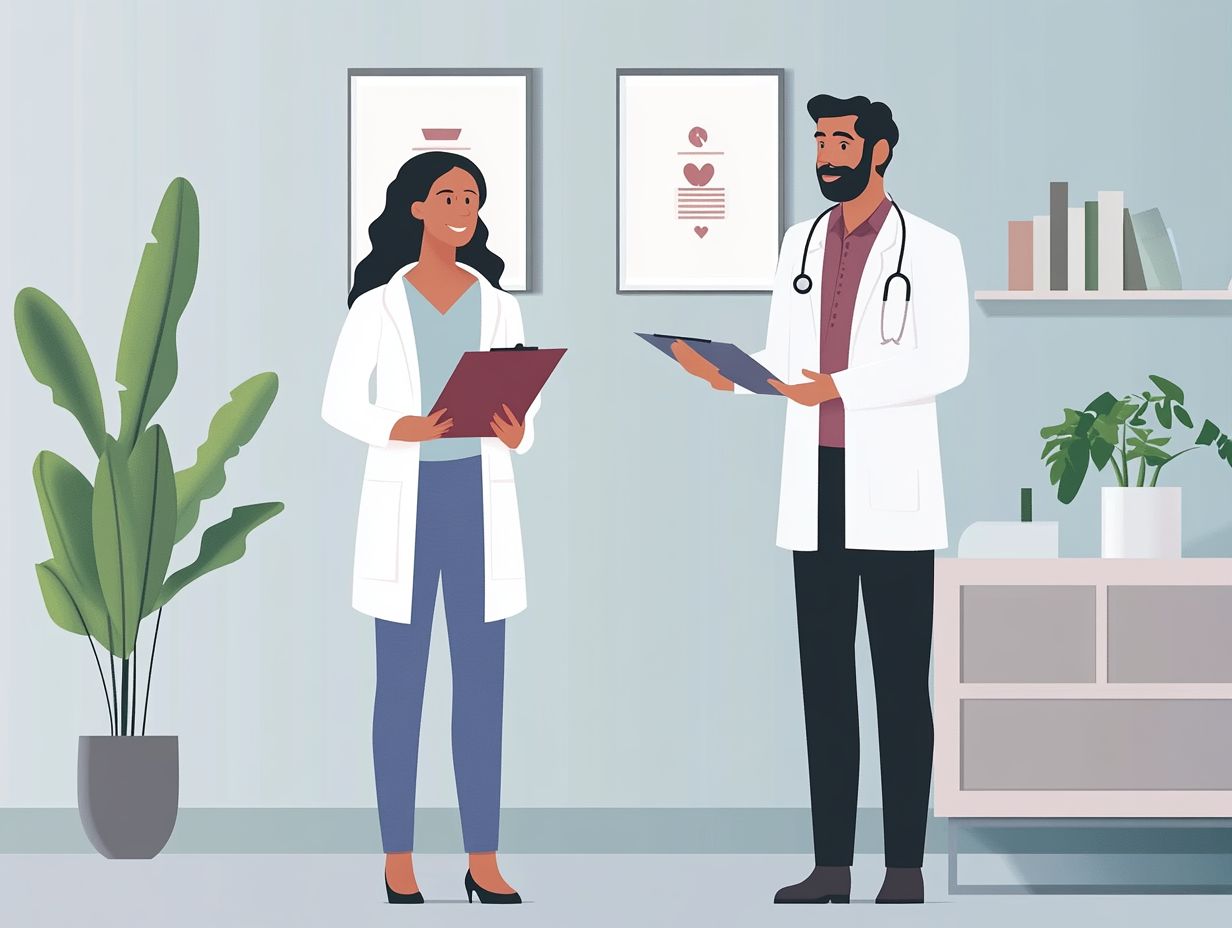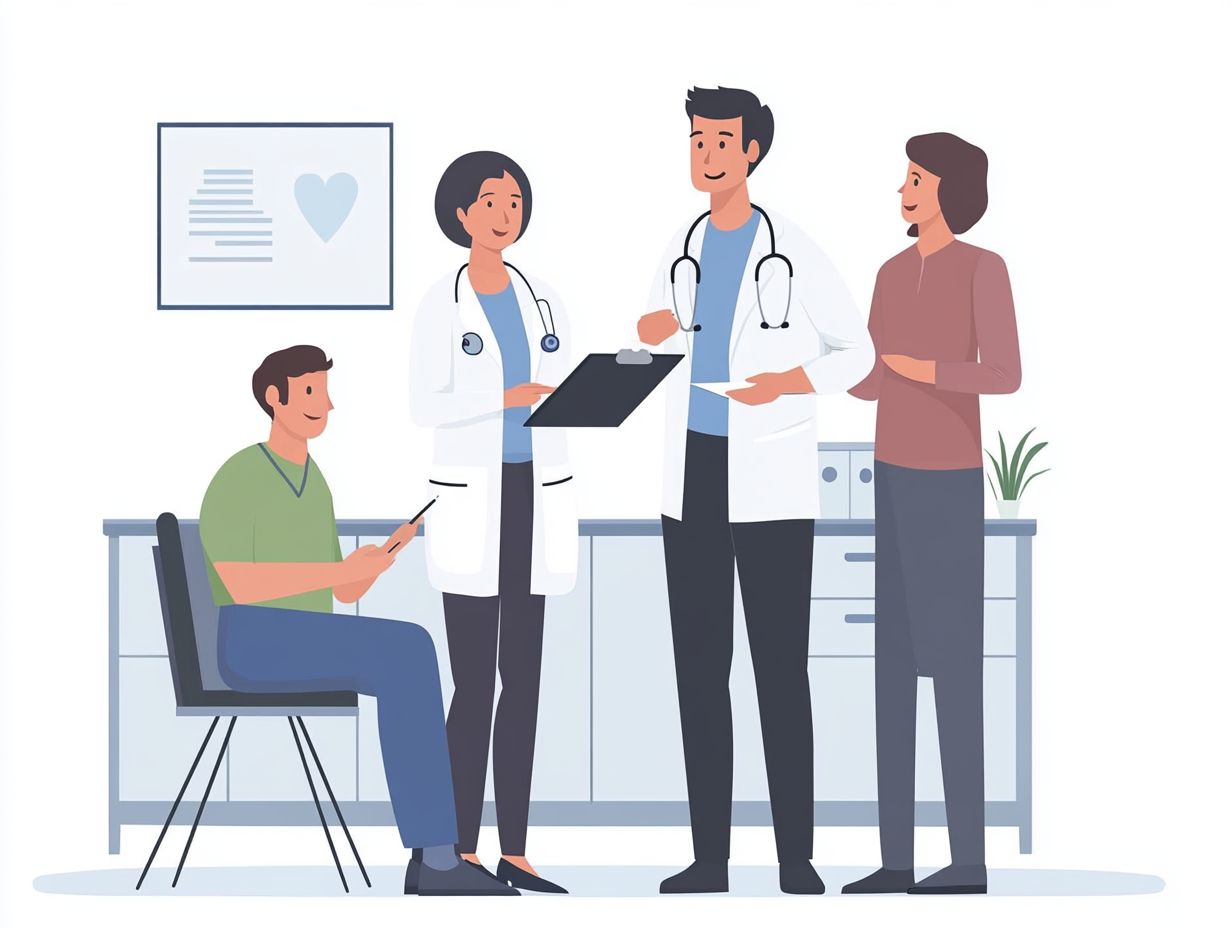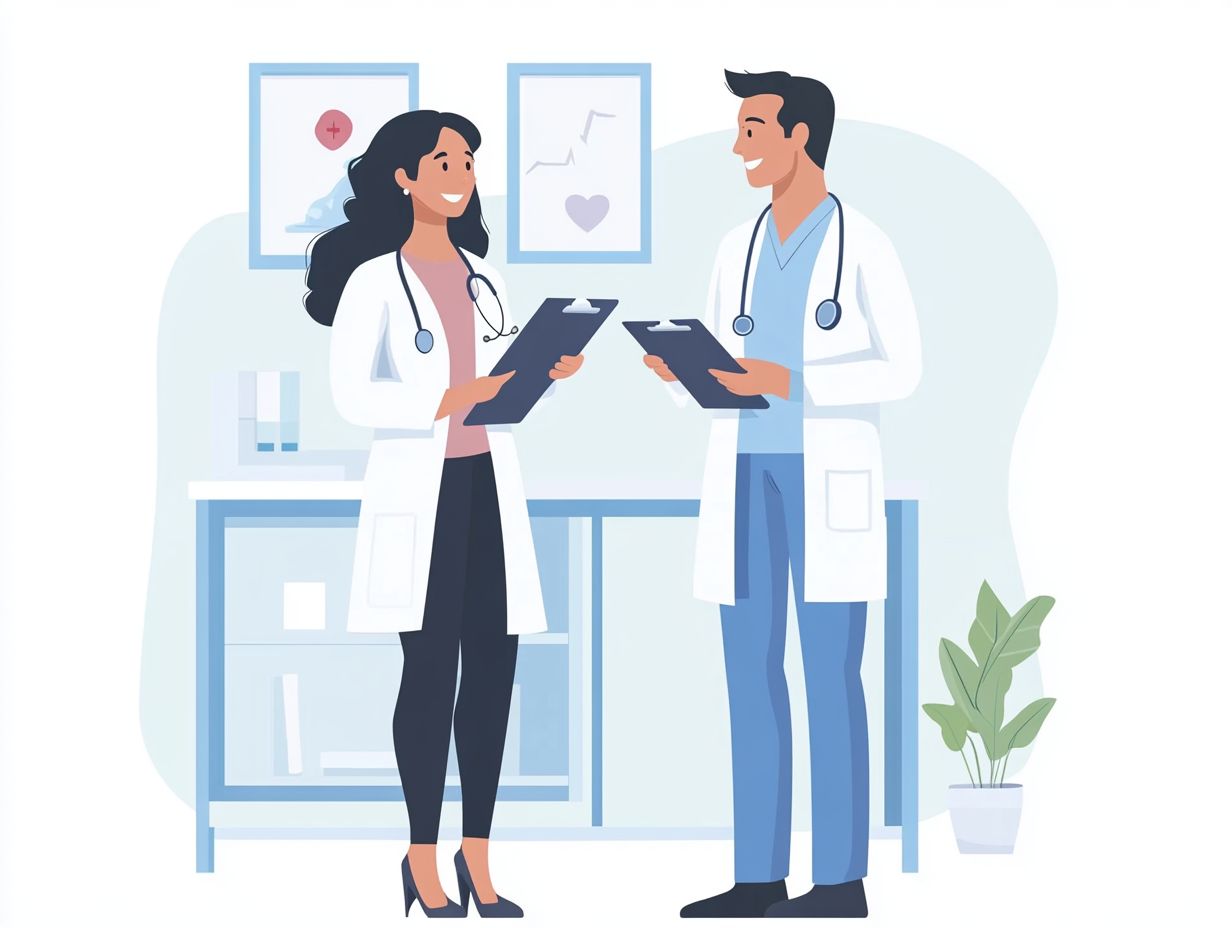Navigating a cancer diagnosis can be overwhelming, and being prepared with the right questions to ask can help you make informed decisions about your care. Consulting your oncologist is crucial to understanding the specifics of your diagnosis and shaping an effective treatment plan. Here are ten essential questions to ask your oncologist:
- What Type of Cancer Do I Have? – Understanding your specific cancer type, including whether it’s breast cancer or another form, is the first step in tailoring your treatment strategy.
- What Stage Is My Cancer In? – Knowing the stage of your cancer helps determine the extent of the cancer and guides the treatment approach.
- What Are My Treatment Options? – Explore cancer treatment options like chemotherapy, radiation therapy, and immunotherapy, considering their benefits and risks.
- What Are the Side Effects of Treatment? – Discuss potential side effects and strategies to manage them effectively.
- How Long Will My Treatment Last? – Get a timeline for your treatment to plan accordingly.
- What Are the Chances of My Cancer Returning? – Understand the factors affecting recurrence and how to minimize risk.
- What Can I Do to Improve My Chances of Survival? – Learn about lifestyle changes and supports, including nutritional guidance, that can enhance your prognosis.
- Are There Any Clinical Trials Available for My Cancer? – Inquire about clinical trials, such as those available at major institutions like MSK and MD Anderson, that may offer new treatment opportunities.
- How Will My Cancer and Treatment Affect My Daily Life? – Anticipate changes to your daily routine and explore resources for support.
- What Support Services Are Available to Me? – Discover available support services like counseling, nutritional guidance, and financial assistance.
Having these discussions with your oncologist can empower you with the knowledge needed to navigate your treatment journey confidently.
Key Takeaways:
1. What Type of Cancer Do I Have?

To determine the type of cancer you have, consult with your healthcare team for a precise diagnosis based on medical tests and evaluations. Your medical history and genetic testing can also play a crucial role in this diagnosis.
The specific type of cancer influences treatment options and strategies.
2. What Stage Is My Cancer In?
Cancer stage is determined by the size of the tumor, lymph node involvement, and metastasis.
- Stage 0 (in situ, non-invasive)
- Stage I (small, localized)
- Stage II (larger or spread to nearby tissues)
- Stage III (spread to nearby lymph nodes or structures)
- Stage IV (metastasis to distant organs)
Cancer stage guides treatment and prognosis.
3. What Are My Treatment Options?
Effective cancer treatment options include chemotherapy, radiation therapy, and immunotherapy.
Chemotherapy uses drugs to kill cancer cells. Radiation therapy uses high-energy waves to damage cancer. Immunotherapy boosts the immune system to fight cancer.
A personalized treatment plan considers the cancer type, stage, and patient’s health.
4. What Are the Side Effects of Treatment?
Cancer treatment side effects include nausea, fatigue, hair loss, changes in organ function, and psychological impacts. These side effects can impact your daily life and wellbeing.
Chemotherapy and radiation therapy are common treatments with these side effects.
Managing side effects involves communication with healthcare providers and supportive care strategies.
5. How Long Will My Treatment Last?
The duration of cancer treatment depends on factors like cancer type, stage, and chosen treatment method.
Cancer treatments, such as surgery, chemotherapy, and radiation, have varying timelines.
The healthcare team must be consulted for a personalized treatment schedule.
6. What Are the Chances of My Cancer Returning?
Chances of breast cancer recurrence are approximately 30% within ten years after treatment.
Factors affecting recurrence include initial cancer stage, tumor grade, and hormone receptor status.
Regular monitoring and lifestyle factors also influence recurrence risk.
7. What Can I Do to Improve My Chances of Survival?

To improve chances of survival after a cancer diagnosis, adhere to the treatment plan, maintain a balanced diet, and engage in regular physical activity. Seeking a second opinion can also provide additional insights and confidence in your treatment plan.
Seek emotional support through counseling or support groups.
Communicate regularly with your healthcare team for tailored guidance.
8. Are There Any Clinical Trials Available for My Cancer?
Clinical trials for cancer are available for various types and stages, including breast cancer. Clinical trial participation can provide access to new therapies that are not yet widely available.
To find available clinical trials, patients should consult healthcare professionals, who can provide information on ongoing studies and eligibility criteria based on health status and cancer stage.
9. How Will My Cancer and Treatment Affect My Daily Life?
How cancer and its treatment can affect daily life varies, impacting physical abilities, emotional well-being, and social interactions. It’s essential to communicate with your patient care team to navigate these changes effectively.
Cancer treatment may disrupt work routines, require time off, and change career paths.
Relationships may experience strain due to emotional stress, and self-care might suffer, leading to further distress.
Support services such as counseling, nutritional guidance, and peer support groups help manage these challenges and improve resilience.
10. What Support Services Are Available to Me?
Support services available during cancer treatment include patient access services to help with scheduling, financial assistance, and logistics:
- Professional counseling for emotional support
- Nutrition guidance for diet planning
- Financial assistance programs to help with treatment costs
Community support groups provide connection and shared experiences.
The healthcare team ensures patients access these resources and are informed about available options.
What Are the Risks and Benefits of Each Treatment Option?
Chemotherapy targets fast-growing cancer cells but risks side effects like nausea and fatigue. Understanding the goal of treatment can help you weigh these risks and benefits.
Radiation therapy offers localized treatment with potential risks of skin irritation.
Immunotherapy uses the immune system to fight cancer but may cause immune-related adverse effects.
Each treatment’s benefits and risks should be discussed with an oncology team to align with health goals.
What Are the Potential Long-Term Effects of Treatment?
The potential long-term effects of cancer treatment include fatigue, cardiovascular complications, and cognitive changes.
These long-term effects can impact quality of life and may not be immediately apparent after treatment.
Regular follow-up care is essential for identifying and managing these long-term effects.
How Often Will I Need Follow-Up Appointments?

Follow-up appointments after cancer treatment typically occur every 3 to 6 months for the first few years, then may extend to annually based on individual health circumstances.
These appointments monitor recovery and detect any recurrence of the disease.
What Can I Do to Manage Side Effects?
To manage side effects during cancer treatment, patients can focus on a balanced diet, engage in gentle physical activity, and seek support resources like those provided by patient care teams and support groups.
-
Balanced diet: Eat fruits, vegetables, lean proteins, and whole grains to support well-being.
-
Gentle physical activity: Activities like walking or yoga can enhance mood and reduce fatigue.
-
Support resources: Join support groups or seek nutritional counseling for additional guidance and emotional support.
How Long Will My Treatment Last?
How long will my treatment last depends on various factors including the type of cancer, stage, and overall health. Your oncologist will provide a personalized timeline.
What Are the Signs of Cancer Recurrence?
Signs of cancer recurrence include unexplained weight loss, persistent fatigue, new or unusual pain, and changes in appetite.
Other signs are:
- Lumps
- Swollen lymph nodes
- Persistent cough
- Breathing difficulties
- Skin changes
Regular monitoring and communication with healthcare providers are crucial for early detection.
What Can I Do to Support Myself During Treatment?
Supporting yourself during cancer treatment involves balancing diet, stress management, and seeking support from your healthcare professionals and support services.
-
Maintain a balanced diet rich in fruits, vegetables, and whole grains to support the immune system.
-
Practice stress management techniques such as mindfulness meditation, deep breathing exercises, or gentle yoga to reduce anxiety.
-
Seek help from support services and patient care teams to create a strong support network, including services like counseling and support groups.
-
Engage in open conversations with healthcare providers to ensure supportive measures align with treatment goals.
Frequently Asked Questions
For more information on how to navigate a cancer diagnosis and treatment, visit reliable sources or consult healthcare professionals.
1. What are the most important questions to ask my oncologist during my appointment?

Some important questions to ask your oncologist during your appointment include: What type of cancer do I have? What stage is my cancer? What are my treatment options? What are the potential side effects? How will this treatment affect my daily life? How can I manage any side effects? What should I do if I experience severe side effects?
2. Can you explain my diagnosis and the stage of my cancer? What should I do next?
Your oncologist will be able to explain in detail your specific diagnosis and stage of cancer. Understanding the intricacies of your diagnosis will help you better evaluate your treatment options and what to expect in the future.
3. What are the potential risks and benefits of each treatment option? Could you explain any clinical trials that might be suitable for me?
It’s important to understand the potential risks and benefits of each treatment option so that you can make an informed decision. Your oncologist can provide this information and discuss any concerns you may have. Additionally, you may find more information about your diagnosis and treatment options by consulting reputable centers such as MSK and MD Anderson.
4. How long will my treatment last and how often will I need to come in for appointments with my oncologist?
Your oncologist will be able to give you an estimated timeline for your treatment and how often you will need to come in for appointments. This can help you plan your schedule and make necessary arrangements. Understanding your treatment timeline is crucial, whether it involves a lumpectomy or mastectomy.
5. Are there any clinical trials, such as those led by Dr. Marc Cohen or Dr. Eric Singhi, or alternative treatments available?
You may want to ask your oncologist about any clinical trials or alternative treatments that may be available to you. This can be a good option for some patients and may provide additional treatment options. If you’re unsure about your options, ask, “What should I do next?” to gain clarity and direction in your treatment plan.
6. How can I manage any side effects and what resources are available to support me during my treatment?
It’s important to discuss how you can manage any potential side effects of your treatment and what resources are available to support you. Your oncologist can offer advice and provide information on support groups or resources for managing side effects. Don’t hesitate to seek support, share your experience with cancer, and connect with others who understand your journey.





